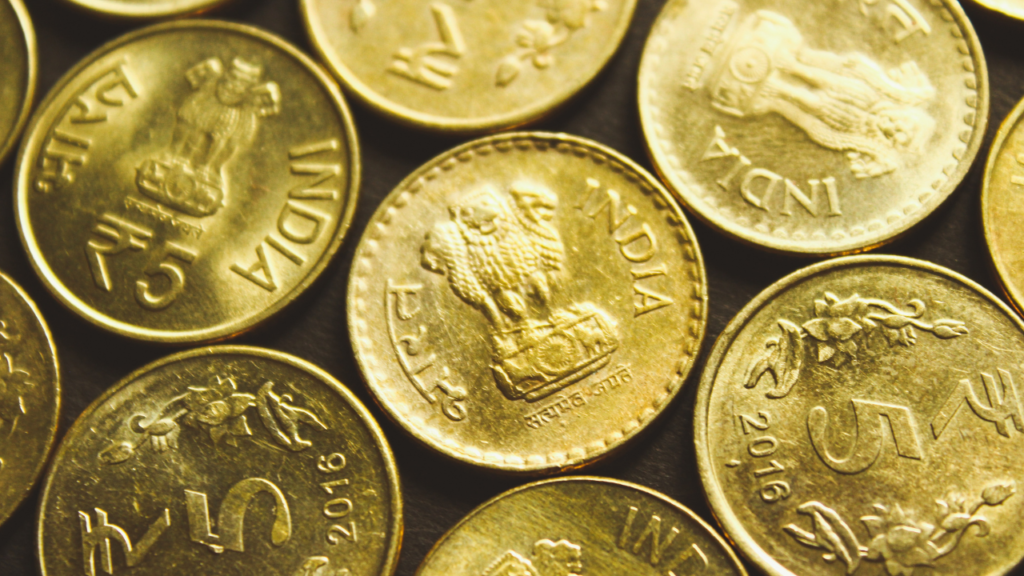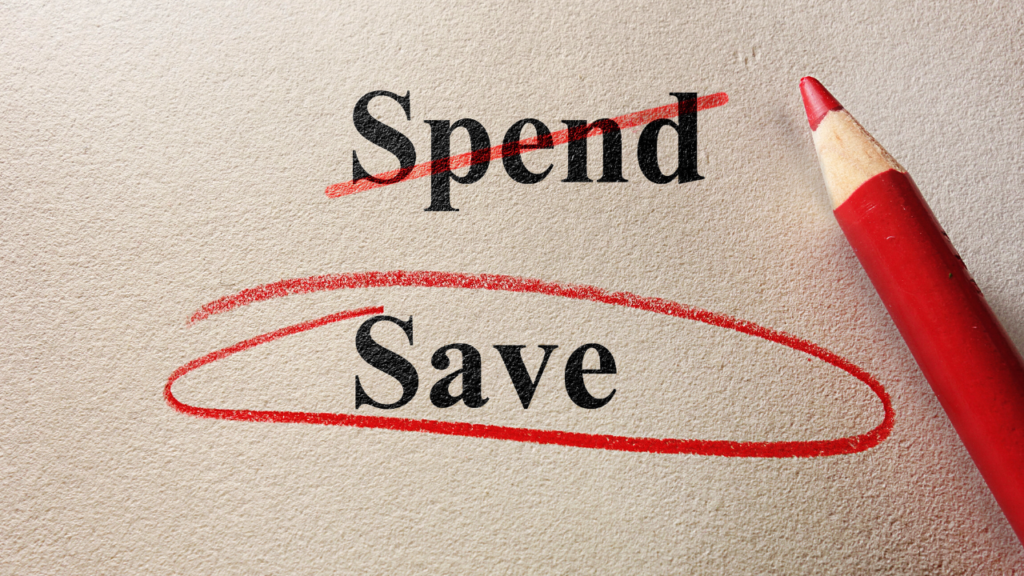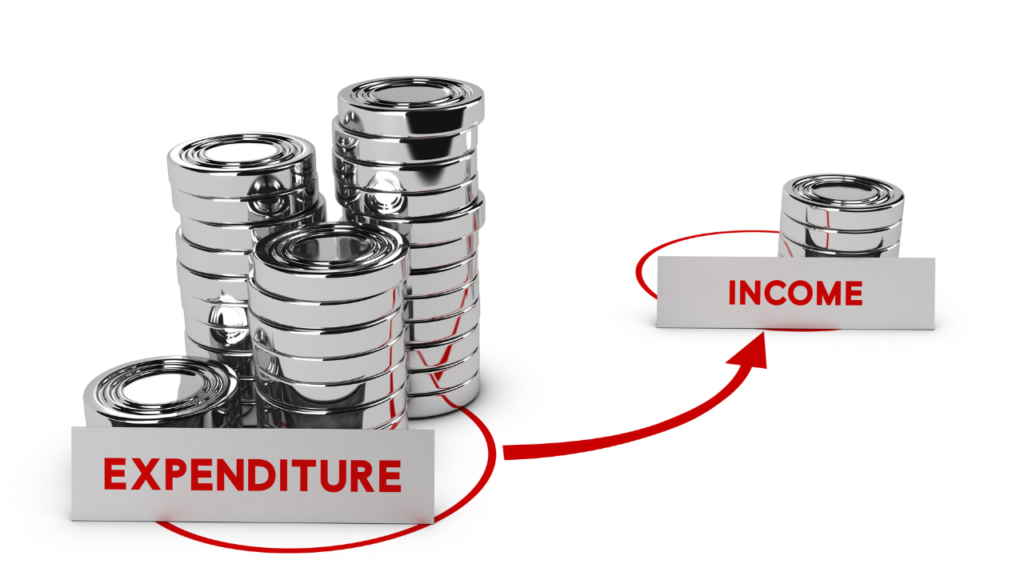
The method for being wealthy is simple – spend less and save more. It’s much easier said than done. As the end of the month arrives, we frequently ponder where all of our money has gone and how much our everyday habits are costing us. So, in order to save a significant amount of money, you must make certain lifestyle modifications. For that, you have to ask some relevant question to yourself that “How much you can spend comfortably vs. how much you really spend?”; “How much you are able to save in accomplishing your financial objectives by performing certain adjustments to your lifestyle”.
Assume you earn Rs. 1 lakh each month. However, if you reach the end of the month having spent the entire Rs. 1 Lakh, your finances are definitely out of control. Even if you make this much money, it’s a good idea to save up some money for a rainy day or an emergency.
Regardless of your salary, there are certain lifestyle adjustments you can do to assist you in keeping more of what you earn. So, here are some easy lifestyle improvements that can help you save more money and enhance your financial situation.

1. Accounting for each and every rupee that you have:
Saving every rupee you make can help you accumulate a substantial amount over time, and ‘every rupee’ in this context refers to coins. This refers to the 1, 2, 5, and 10 rupee coins you toss into your purse or pocket and then forget about. When you put all of your coin change in a coin purse or a piggy bank instead, you may save a considerable sum and can either invest it or put it to greater use. This in no way implies that you are a penny pincher. It just demonstrates how intelligent you have become by behaving wisely and steadily boosting your wealth.
2. Do it yourself:
We millennials rely extensively on assistance to complete our everyday tasks, which might be owing to our lifestyle or our lengthy work hours. This appears to be extremely costly. From cooking to fixing clothes and repairing the drain to landscaping, you may well have hired somebody to help you get through your day conveniently. What you don’t realise right away is that by employing someone else to handle these duties, you’re foregoing a big portion of your hard-earned income on something you could easily accomplish yourselves. If handling the duties all by yourself is too much trouble, consider splitting them with your housemates or your spouse. Saving gets simpler when everyone is on the same page. Learning new abilities and completing tasks with fulfilment is usually more enjoyable. Basic plumbing, cooking, baking, interior decorating, tailoring, and other DIY projects are just a few examples of ways to save money.

3. Compare prices before buying:
This one certainly doesn’t need much elaboration, but simply making sure you’re paying a fair price for anything will help you save cash in the long run. An excellent example is your shopping list, which allows you to compare costs from one store to the next as well as from one brand to the next. This will reveal you where you can buy the same item at a lower price. Not only your grocery list or any other provisions, this price comparison can be done for your insurance each year, and therefore you can go for a decent price insurance to assist in keeping your expenses down.
4. Don’t go to the shops hungry:
Shopping on an empty stomach may be more detrimental than you believe. Five independent studies discovered that not only are you more inclined to buy food on impulse, but being hungry also results in increased purchasing of other products. So, whether you’re going for grocery shopping or shopping for new garments, eating some food before you go might prevent you from overspending.
5. Do a lot of Money conversations:
Many families argue over finances, but if you make it a topic of discussion, you may be able to enhance the way you deal with money as a family. You may set financial objectives together, combine your funds, and even do activities that make money management enjoyable rather than onerous. You may also talk about money with your children to give them a taste of what finances are like, which is a crucial subject for them to grasp early-on in their lives.

6. Reduce your Car Driving:
Cars are wonderful, but the costs of fuel, insurance, maintenance, and service may be too high. If you can and your health permits it, reducing your car travel and depending on public transportation, cycling, or walking may help you save money on a regular basis. You could even discover that you don’t need a car, which itself will save you a significant amount of money each month. If you pay an EMI for a car loan, the costs of owning a car would skyrocket even further. Taking out a loan to buy a car is never a good idea at any time in your life because cars are considered luxury items and so taking out a loan for luxury is a strict “no-no”.
7. Keep Credit cards out of your reach:
This may seem strange, but researches have shown that you are more likely to expend more money using a credit card than with cash. The assumption underlying this is that there is a lag between ‘when money is spent and when it is debited from your account’. Hence, this encourages you to spend more money each month, but you will be surprised when you receive your bill each month. To avert this shock, it is best to hide your Credit Card so that you do not go for it every time you spend. It is also preferable not to carry your credit card in your purse, which might be a feasible method to avoiding large credit card bills.
8. Try to practice delayed gratification:
This is one of the top personal finance advice that we should follow in order to save more money. This suggestion indicates that if you find something you surely want, don’t buy it immediately away; instead, wait a little and see whether your desire in it hasn’t faded. If it does not grab your attention right now, or if it is of little benefit to you, it is not worth your money. We may do this even while shopping online by adding products to our wish list rather than purchasing them right away. We can return to the website in a few days to assess if the item on the wish list is still useful to us.

9. Save first and spend later:
Another lifestyle adjustment that can have a significant impact on your money is how you save. In general, we spend first and then save the rest of our money, which is not a good practice. This is analogous to a car driver who cannot see the road due to fog. You may have objectives, but you will only save for them if you have anything left over after paying your bills. Because of this, you won’t have enough funds, and hence you’ll take longer to reach your financial goals.
However, the prudent course of action is to save first and then spend the remainder, in which case you will have a firm grip on your finances. When you save first and spend later, you set away a portion of your income, limiting your access to finances and forcing you to spend more carefully. When you consider the broad picture, you will be better prepared to accomplish your aspirations and goals because you have saved freely over time.
10. Pay your bills on time:
Procrastination is a time and money thief to some degree. Late payment of your bills incurs penalties and diminishes your cash without your knowledge. Depending upon the service, the supplier either charges an interest penalty or a flat fee. Postponing your credit card payment, for example, generates a high monthly interest rate of 3% to 4%. Consider what transpires if you don’t pay your bills for a few months. It’s no secret that you will accrue a large bill amount over time and will be charged high interest until you pay it off.
Include energy bills, phone bills, and EMIs in your monthly responsibilities and strive to pay them on time to prevent fines or penalty costs.

11. Stop Overspending:
As people in today’s ever-busy economy, we have a propensity of running on overload, and amid this hectic period, we buy a coffee here and a food takeout there, and maybe overspend on the food budget a little. Simply keep track of where you spent your money in the previous week. Plan a no-spend weekend to prevent wasteful spending. Create a budget; pay for your bills with cash; plan a dinner with your family by cooking at home and include your family members as well in the cooking process. It will be more enjoyable and less expensive than going out to lunch or dinner.
Conclusion:
You may undoubtedly see your savings grow by adopting little to large lifestyle adjustments. You either garner advantages or pay for your activities in the future based on what you set in motion in the past. You must hold yourself responsible for your financial standing. If you have spent your money wisely from the outset, you should have amassed substantial savings by now. If not, you will be required to save over and above your means in the future to secure your future. Finally, how you handle your money is determined by your lifestyle. Implementing the aforementioned lifestyle changes might help you reach new heights in terms of financial security.





